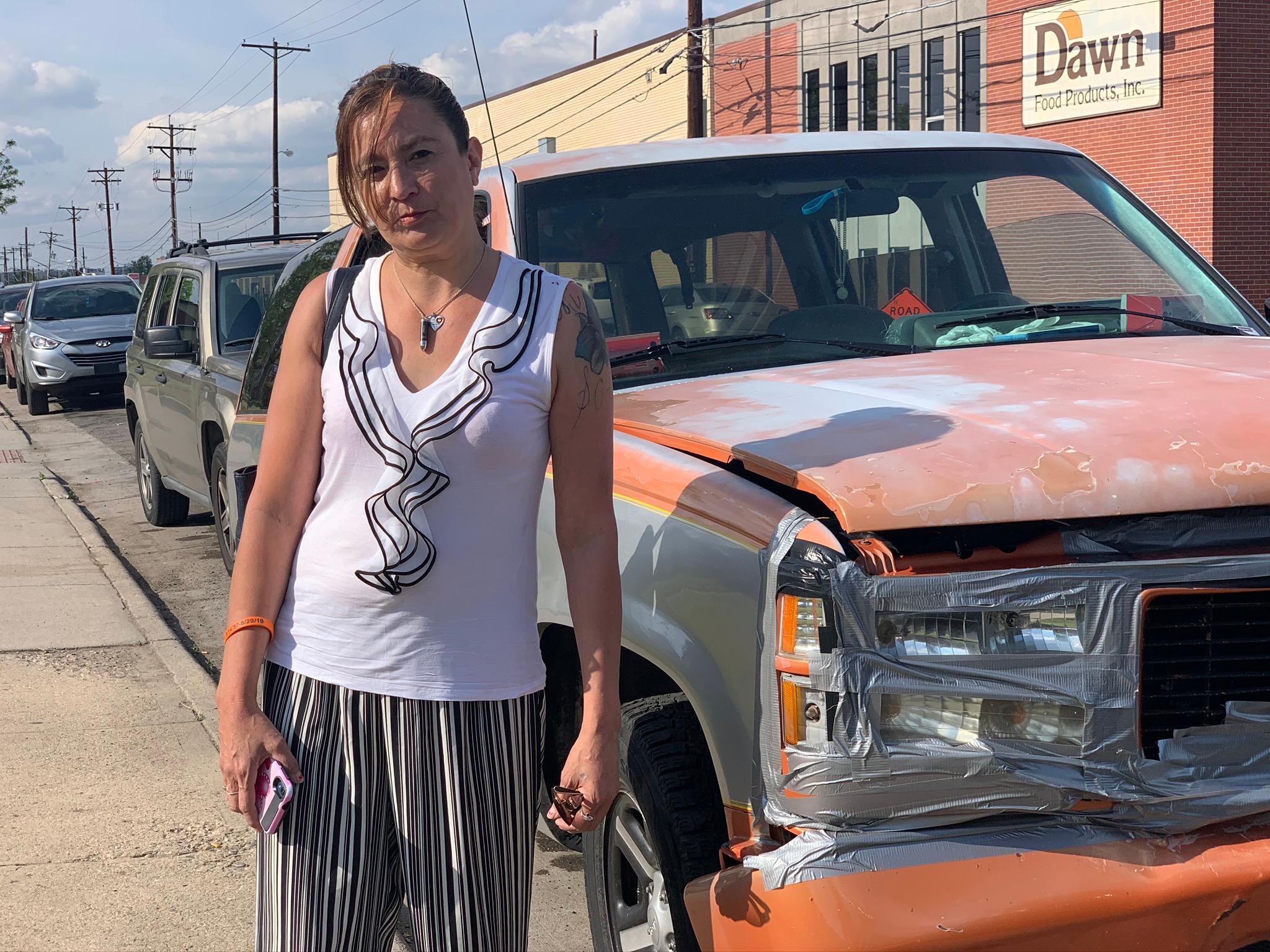
Walking through the sun-soaked streets of Denver’s Northside, in a city where her family has lived for generations, Tiffany Quintana felt lost.
She was three blocks north of the elementary school she attended, the one she once called her “castle.” The house where she grew up was just four blocks away. That life suddenly seemed much further away.
“It’s nice to be a Colorado native. I love it,” she said on that day in May. The 41-year-old paused and reconsidered, dropping her voice a bit. “I loved it. I still love it. Things are just a little different.”
Quintana crossed between garden-style apartments to reach her destination: a rusty Chevy Suburban with an orange-stripe paint job.
She opened the rear hatch and surveyed her new life: pillows and blankets, a blow-up mattress, some clothing, the things she grabbed when her landlord ordered her and her boyfriend out of their apartment in Westminster weeks earlier.
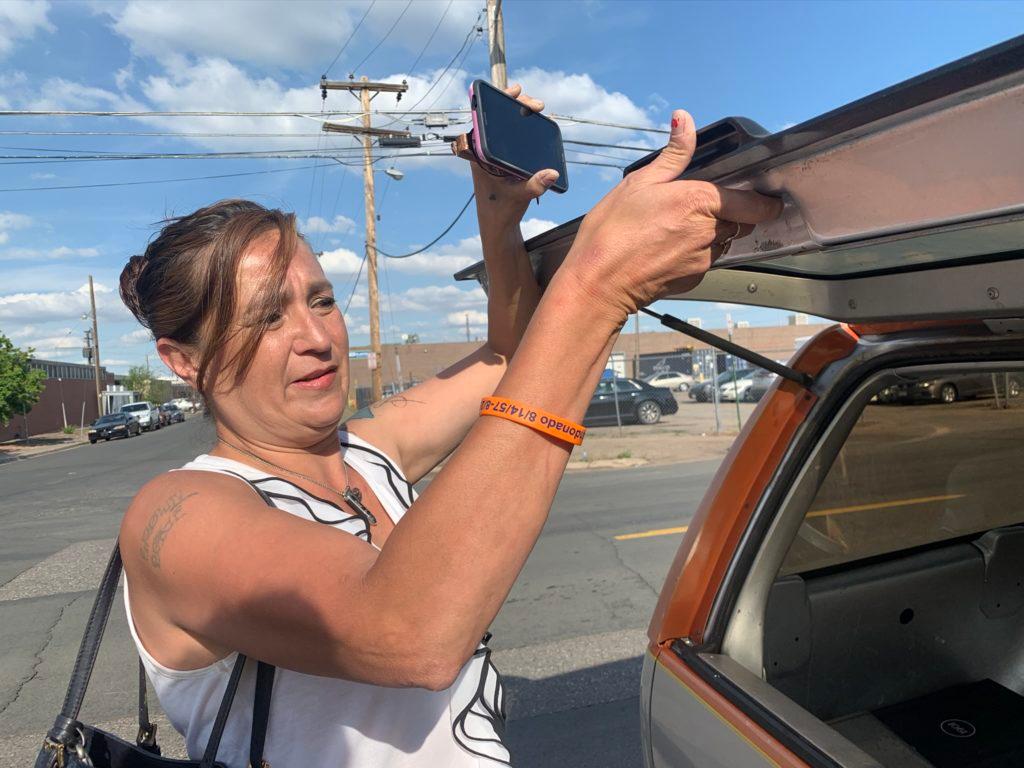
“We lost our entertainment center. We lost our computer, my computer desk. I know I left some clothes behind, I left pretty much all of our food that was in our cupboards,” she said.
Quintana became one of Colorado’s first COVID-19 homeless early in May. Eviction threw her into a two-month odyssey through the streets of Denver — her first direct experience with homelessness, and one that foreshadows the fears of countless other people.
“To see the world, the way that it is right now. I never thought that I would see it like this. It was scary to me,” Quintana said.
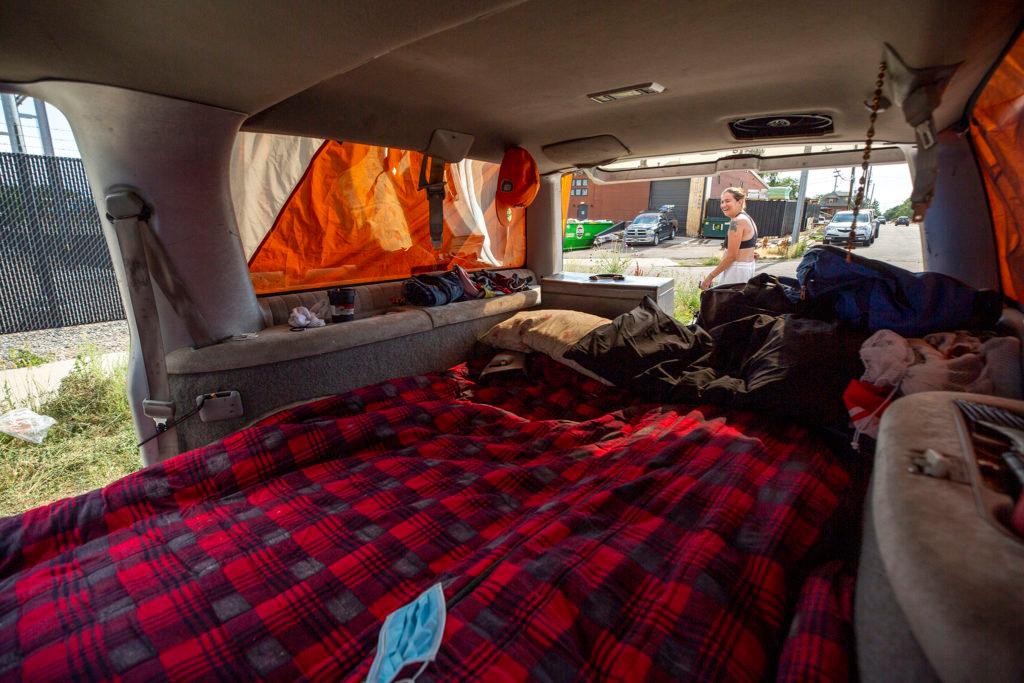
Evictions ramping up again
The state had largely banned evictions for several months starting in March, but the eviction courts are accelerating now.
Landlords have filed more than 800 eviction cases since June 1. Many were cases like Quintana’s, where the paperwork was filed just before the pandemic ramped up — one of the exceptions to Gov. Jared Polis’ eviction orders.
That’s only a preview of what’s to come.
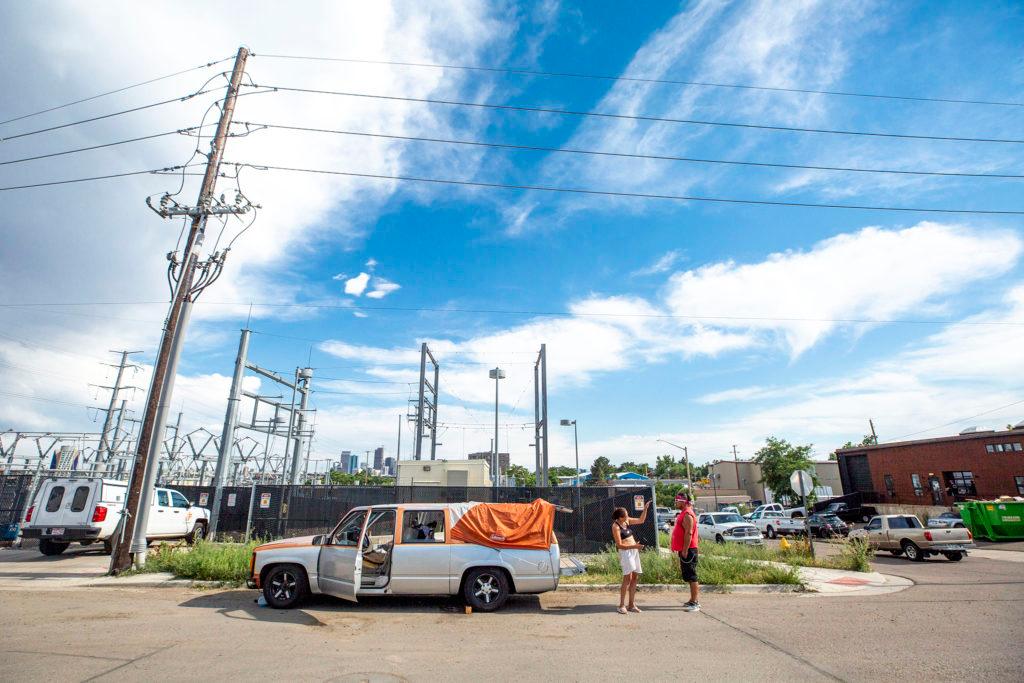
The pace will likely increase as tenants will soon hit a crucial payment deadline. When the eviction ban expired on June 13, Polis ordered landlords to give tenants one more month to pay up.
Housing advocates have asked for a renewed ban on evictions, but the governor has said he must balance the needs of property owners with the demands of tenants. Sheriff’s deputies across the state are preparing to enforce orders from the courts.
Meanwhile, homelessness has surged. Denver’s shelters are logging about 1,700 visitors per night — more than the coldest night in February — and informal encampments have spread throughout downtown.
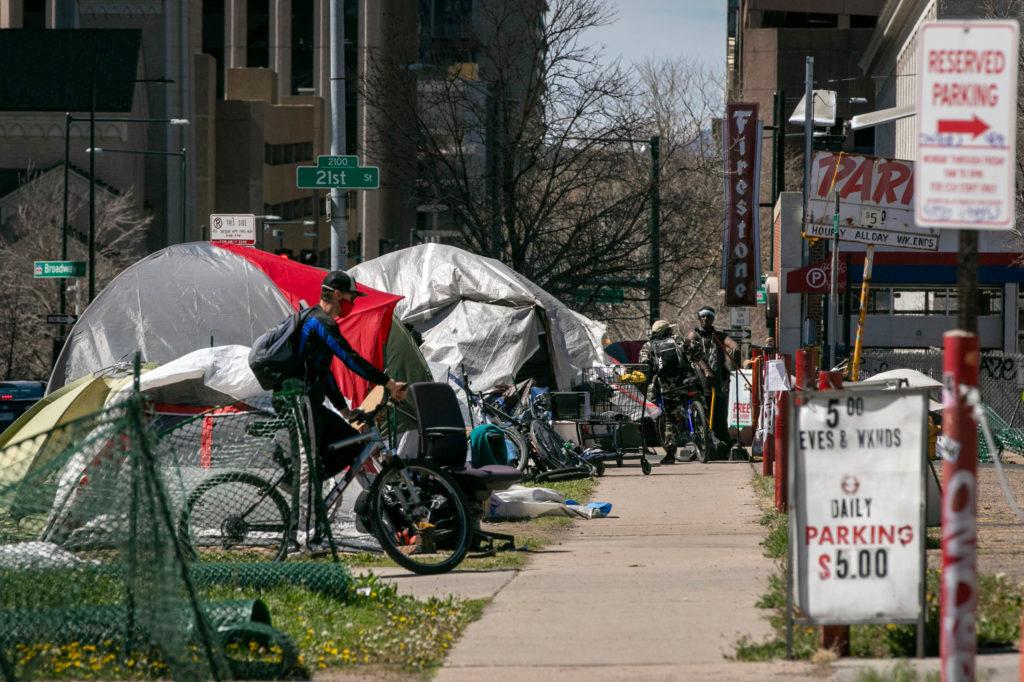
“Simply said, we are seeing demand during the spring and summer at the levels we would see during an extreme weather event,” said Britta Fisher, Denver’s chief housing officer. The city has seen a fourfold increase in demand for rental assistance and rolled out millions in relief funds.
Some of the increase in visible homelessness could be a result of city policies: The new emergency shelters are generally better reviewed than the regular shelters, and the city has scaled back its sweeps of people sleeping on the street.
But housing advocates say too that they’re seeing newly homeless people everywhere. Tiffany Quintana was not alone, though she often felt that way.
“We get people coming in our office really every week that are asking for tents or gear, or just general help, as well as people calling our phone line, that are newly homeless due to COVID, due to losing jobs, due to getting kicked out of housing,” said Terese Howard, a member of Denver Homeless Out Loud.
And the path back home — never easy amid a housing shortage — could be even harder among a grinding economic recovery and the months-long wait for a COVID-19 vaccine. This account, based on interviews with Quintana and others over several weeks, shows what may be ahead for people facing homelessness in a pandemic.
No chance to recover?
Quintana was already in trouble when the pandemic hit.
She said her spiral started early this year when she took time off work to care for a relative. She’d never saved much, but she expected to make up the money quickly through a patchwork of retail and service jobs. At the time, the state’s unemployment rate was historically low.
“I've always been in customer service. I've always been a cashier. I love it,” she said.
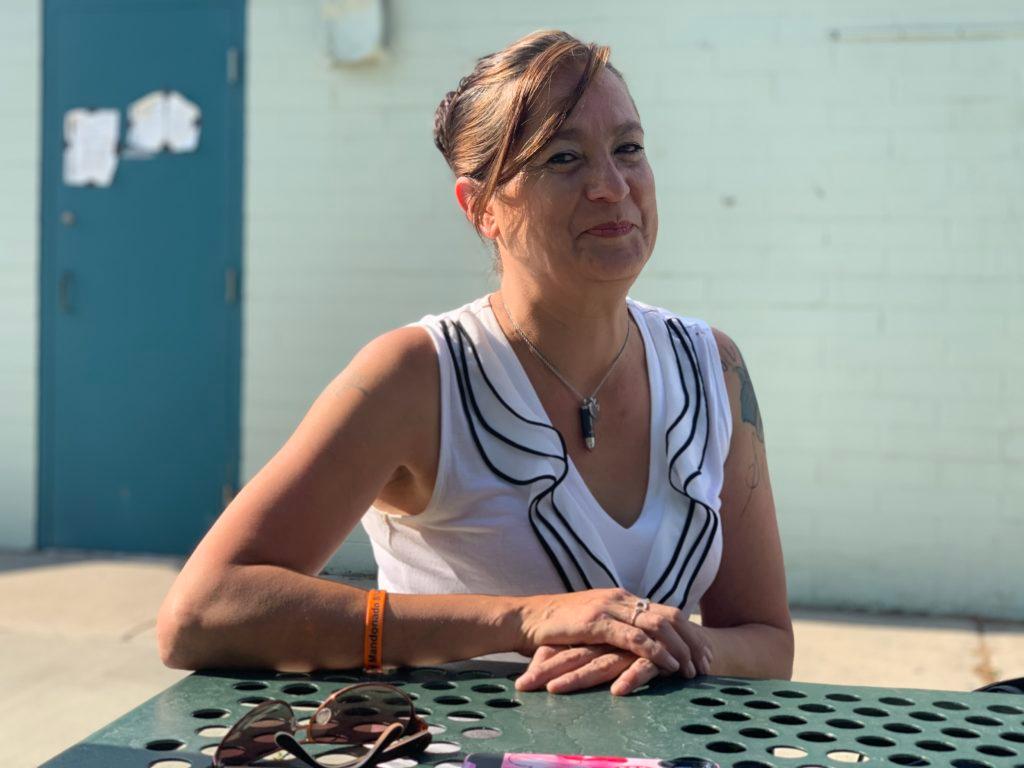
By February, she’d fallen behind on rent. Her landlord filed for eviction the week before the first coronavirus cases were confirmed in Colorado, according to court records. A judge issued the eviction order days before Gov. Polis announced his first limits on evictions in March.
Quintana returned to work at Walmart in April, but within days she fell sick. She spent two weeks suffering through a head-pounding illness that she suspects was COVID-19. Her boyfriend, who was injured on a roofing job, couldn’t cover the rent with his disability payments, and they fell further behind.
In early May, Quintana received her $1,200 stimulus check and said she offered half to the landlord. That didn’t fly. The property representative told her to leave within a day, she said — and they obeyed.
A representative for the Adams County Sheriff’s Office told CPR News deputies weren’t carrying out evictions at the time in the spring. But Quintana didn’t know what would happen, and she hoped to avoid getting an eviction on her record.
“It was probably a mistake (to leave the apartment) because I probably wouldn't be in this situation right now,” she said in June.
Ashley Jefferson, director of multifamily operations for BLDG Management, which runs the apartments where Quintana lived, said she couldn’t comment on the specific case but that the company only turns to eviction as a last resort.
“It’s heartbreaking to me personally and to BLDG as a company to be forced to evict someone — and that’s why we do try to do payment plans,” Jefferson said. “But at the end of the day if you’re not able to offer a plan that was going to get you caught up, then we’re left with no other decision than to be forced to have you move out.”
Adrift in the city
Quintana soon learned one of the first lessons of homelessness: nothing is easy.
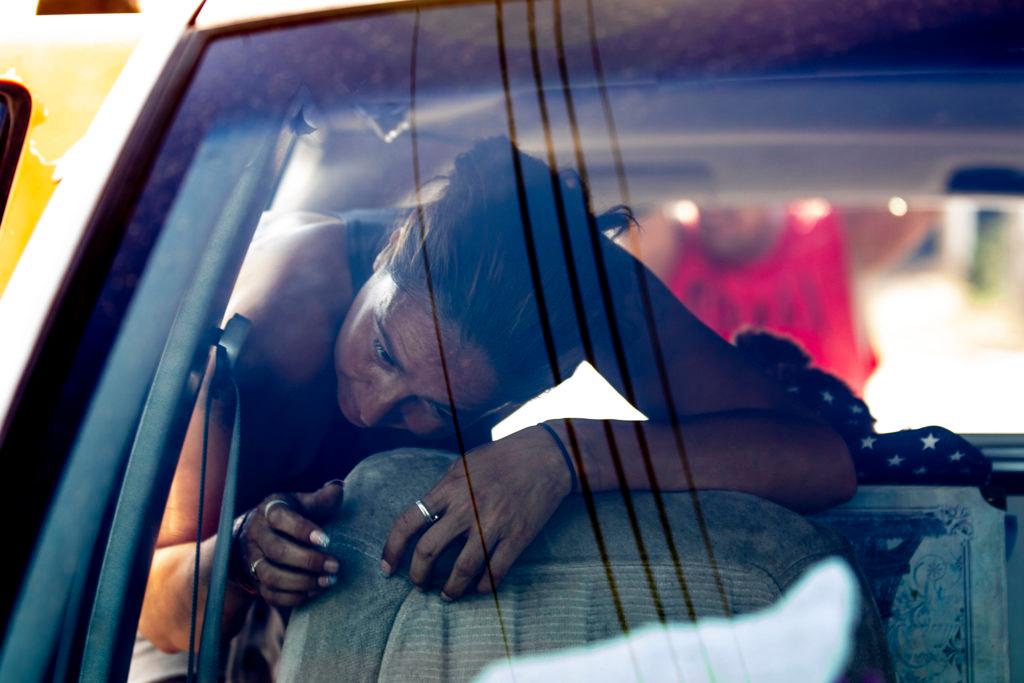
The smallest tasks became hours-long ordeals, made worse by the pandemic. With the recreational centers closed, she couldn’t find anywhere to shower. The libraries were shuttered, and with them, easy access to the internet.
Denver’s large new emergency shelters offered much-needed services, including showers, but many services in the women’s shelter were only available to people staying overnight and Quintana was scared to do that.
“I just try to figure out what to do from one point to another, how I'm going to eat without having to ask somebody, how I'm going to take a shower,” she said.
The federal government has rolled out billions for unemployment payments and other benefits that have kept many people afloat. But countless others, Quintana included, have struggled to get that help. The state’s unemployment website threw an unsolvable error, and she was frozen out by the hours-long wait to get through to the call center. (The state is now deploying an automated call-back system.)
As the weeks passed and the summer heat set in, Quintana felt herself drift further and further from her old life.
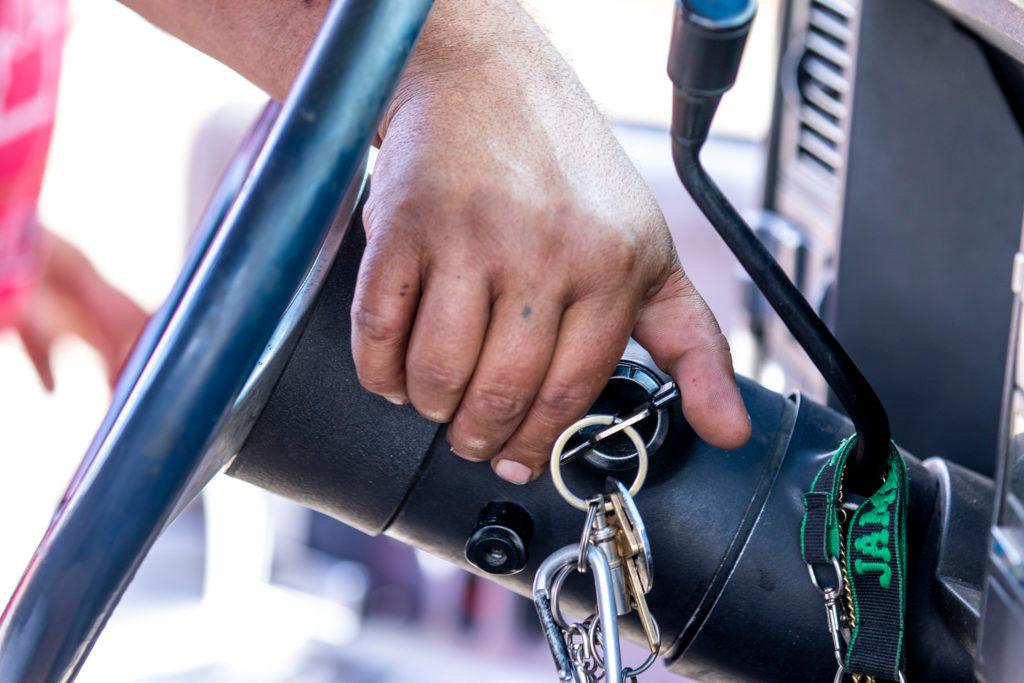
“I am definitely homeless,” Quintana said one day, her voice wavering. “I can’t eat a home-cooked meal. I crave a home-cooked meal so bad. I crave a shower. I crave watching TV. I crave just laying down in a bed.”
It was the fulfillment of her worst fears. She’d watched her late father live in homelessness for years as he struggled with alcoholism and she remembered how it stuck with him. He’d still take “bird baths” in public restrooms, long after he was housed again — a sign of the permanent trauma that can result from temporary homelessness.
Quintana had promised her father when he died in 2019 that she would take care of herself. “Right now, I feel like I’m breaking it, but I don’t have any options for breaking it,” she said.
She still has family in the area, and they helped where they could, including with phone bills, but she felt her relationships fraying, and she often didn’t want to see people. Quintana, who carefully chooses outfits and normally cares for her appearance, felt sweaty and unclean for weeks on end.
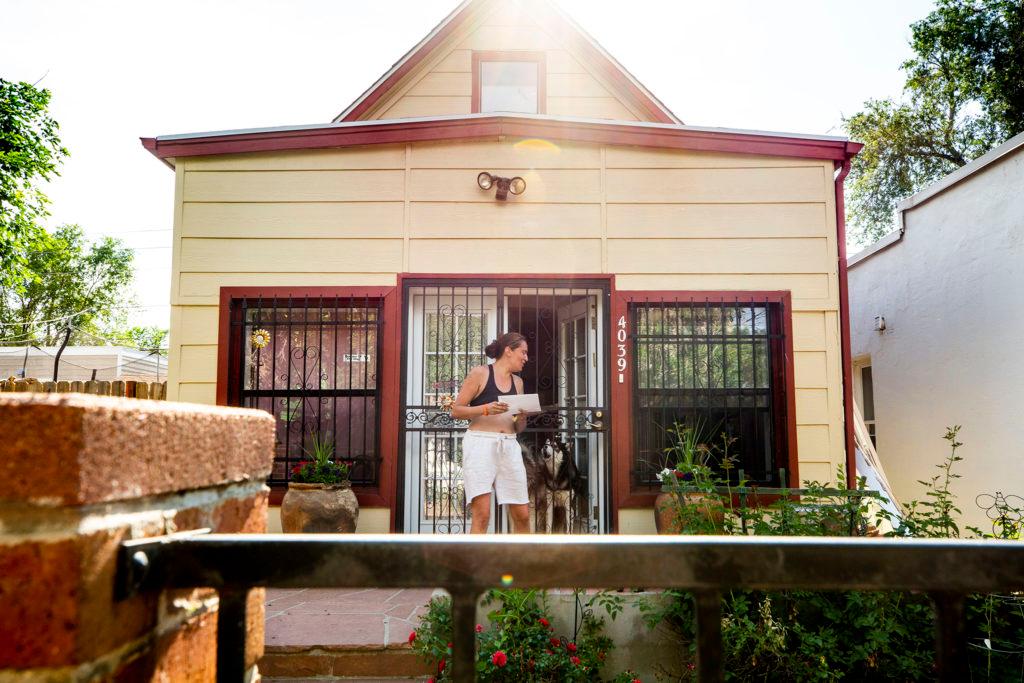
Those feelings of isolation and shame are part of the cycle of homelessness. And the social networks people turn to in hard times may be soon pushed to the limit as evictions become possible again.
“Social isolation is a very important factor. Another factor is shame. People are ashamed of being without a home, in large part because of all the negative stereotypes and stigmatism that’s associated with homelessness,” said Don Burnes, head of the Burnes Institute for Poverty Research at the Colorado Center on Law & Policy.
Even before the pandemic, more than 400,000 households in Colorado didn’t make enough money to meet the self-sufficiency standard, including about half of all Black and Latino households, according to a study published by CCLP. (The self-sufficiency standard is a measurement of income and life needs that considers more factors than the federal poverty guideline, including housing, health care and transportation.)
A happy ending, for now
Late in June, after weeks of struggling to navigate the unemployment bureaucracy, Quintana got a call from a state employee. She learned that potential identity theft had interfered with her unemployment application — and that she might qualify for thousands of dollars in unemployment payments now that the problem was resolved.
By then, Quintana had been all across the city. She’d slept in parks and in the Suburban. She’d briefly split with her boyfriend, James Johnson, and spent a few nights at the National Western Center emergency shelter.
Now they were back together and camping in the barely functional SUV outside a friend’s rental on another sweat-dripping day, but they would have to move once more. They’d just spotted the landlord taking photos, and now their friend was on his way out to talk with them.
“I don’t know, we might have to put the driveshaft back in and ride it slowly down the block,” Quintana said over the phone. “It’s crazy, it’s like you get a good feeling for a moment and then, boom, right back down — like, OK, now what?”
The next good news came in the mail, delivered to a relative’s house. The couple rushed over to collect the envelope, and Quintana carefully tore it open.
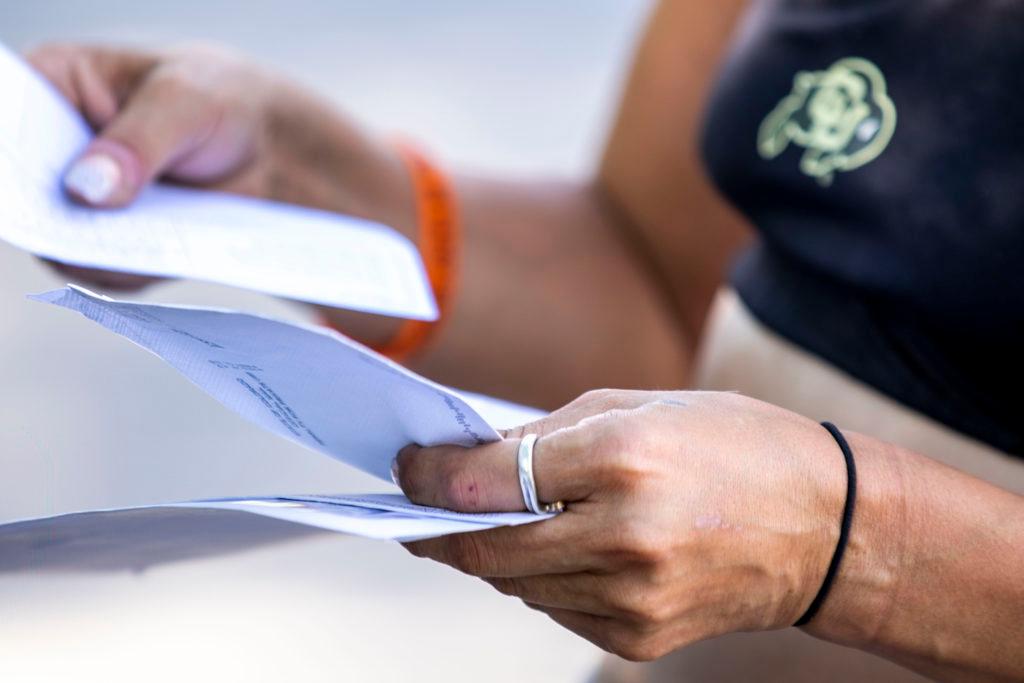
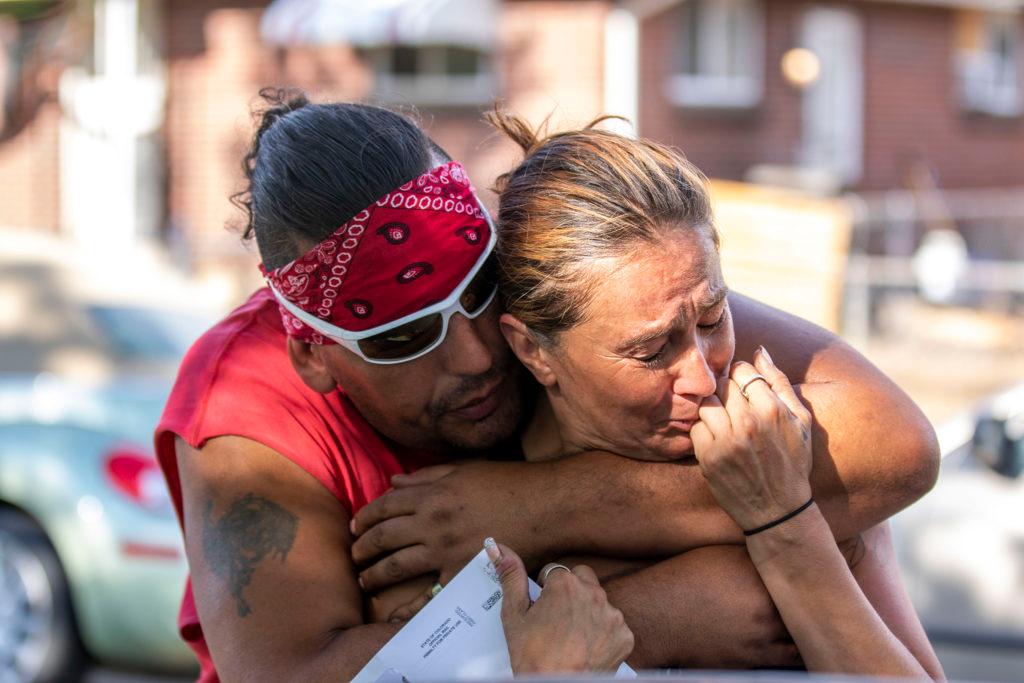
It wasn’t the benefits card she hoped for, but it was the paperwork she needed. She chirped with excitement and started to shake, Johnson wrapping his arms across her chest. The end was in sight and within days, their first payments really did arrive.
The couple rented a motel room and, finally, signed a lease last week for a new apartment. They moved in the possessions that had survived their odyssey. A few mementos made it through; Quintana had been able to save most of her late father’s things in the rush to leave their old place.
Quintana is still scared. Rent in Denver is perilously high and so is the unemployment rate. Her benefits will start to ratchet down within weeks if Congress lets the $600 weekly emergency supplement expired. On a few nights last week, she woke up and thought she was in a motel, instantly worrying where they’d go next.
“I was traumatized by this,” she said on Sunday. But, for now, Quintana has a place to stay — to shower, to cook food, to watch TV — and a moment of security.
“It feels good,” she said. “These couple of months felt like years.”









